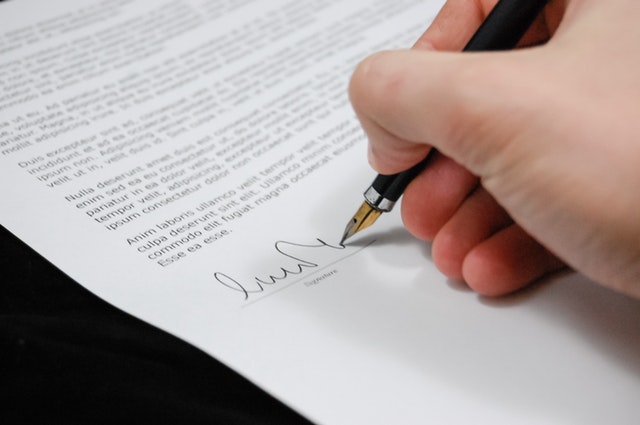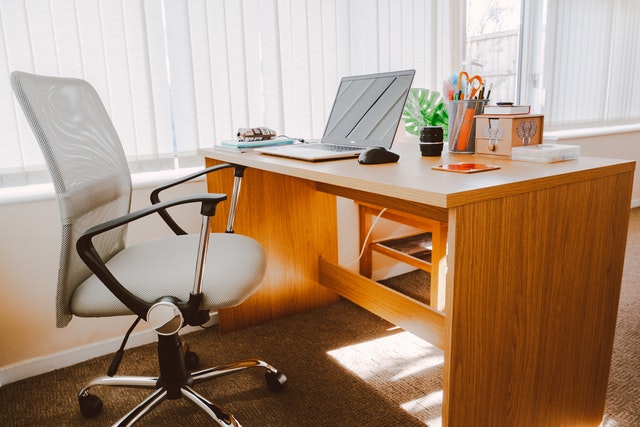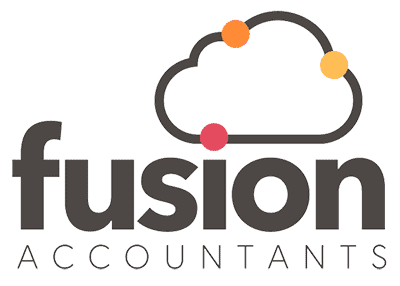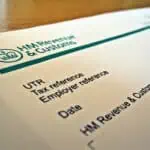Working from home expenses for Limited Companies
Reading Time:
Many people today believe in the comfort of working from home. Some work as sole traders while others run limited companies from home. The ease and flexibility of working from home give room for more creativity and productivity. Moreover, anti-nine-to-five jobs people absolutely love working from home. Both of these are entitled to some excellent benefits in the tax department. However, the process is different for both, and today, we will be focusing on Limited Company expenses that can be claimed.
Running a limited company from home means carrying out the trade of your services and products from home. But it is not just limited to this. This phase of the business world has its own perks. Many people today running a limited company from home are simply unaware of these perks or don’t know how to claim them. What you need to know about running a limited company from home is what we are going to cover today in detail. So, fasten your seatbelt.
There is a chunk of home expenses related to your limited company that can be legitimately claimed against your tax bill. Claiming these expenses will quickly increase your disposable monthly income.
How to account for the expenses
Now the real question is how. Updating your knowledge about the expenses you can and cannot claim will clear the confusion in your head. You are eligible to include part of the running costs of your home to the limited Company’s account. This will help you save some tax and increase the income.
What about the flat rate?
The simplified flat rate method can be easily used to work out the part of the costs of your home is subjected to work. However, limited companies have different rules. Being a limited company makes you ineligible to calculate the expenses using this method. So, you need to look for other alternatives to calculate which we will be talking about shortly.
It is essential to keep in mind that the expenses related to small businesses are quite complicated, so if you are ever unsure about anything, it is always advised to seek the services of a professional accountant.
Let’s have a look at three potential ways to account the expenses you may incur while working from home.
The part of the expense that doesn’t require justification

The amount you spend working from home counts a lot. If it is occasionally, then HMRC is generous enough to allow your limited Company to pay the nominal expenses to cover the general costs incurred.
There is a whole process for this. Your Company is your employer, and you are the employee. Now the Company is permitted to pay the employee (you) a sum of £18 monthly or £4 weekly. This payment is to cover the part of expenses that fall under the ‘use of home’ category. Moreover, this sum does not require any authorization.
“We would expect that £4 per week would be sufficient for most cases, particularly where the additional costs are only for heating and lighting the work area.”-HMRC.
The amount may seem very minute, but if you do the math, it adds up to £216 in one year. This sum on a regular basis is subjected to Corporation and personal taxes if not claimed. Most limited company owners go for this simple option unless a better proportional expense can be claimed.
The proportional Household expense claim
In a situation where you use your home for more than occasionally or on a regular basis, there is a wide variety of expenses that can be claimed. The only hurdle here is that these expenses need to be justified. Moreover, you need to be aware of the expenses that can be claimed. Unlike the rules that exist for Sole Traders, limited companies can only claim the incremental costs sustained due to working from home.
In simpler words, only the additional costs incurred due to running a limited company from home can be claimed. The expenses that you were already borne by the very virtue of running a home cannot be claimed. Moreover, all the expenses that are incurred due to both home usage, as well as work usage, are excluded as well.
To calculate this, you need to work out the costs of all the allowable expenses. These include gas, electricity, and water. The calculation must be in accordance with the number of rooms in the house and the amount of time spent working in them. However, limited companies are not allowed to claim any fixed costs because you are obligated to pay these in either case. Some examples of these fixed costs include Mortgage Interest, rent, and council tax.
However, there is a way out of the incremental costs condition. If you figure out a way to make the contracts of the utility bills in your Company’s name, then the expenses can be claimed. In a different case, if the bills can demonstrate the times spent using the utilities for private purposes and business purposes separately, expenses can be claimed.
Signing a contract with your own Company!
The third way to account for the expenses is quite different than the first two. Here you will be in a formal rental contract with your very own Limited Company. However, getting in a formal rental agreement with your own Company is a complex process and needs to be handled with care.

The agreement is required to be a commercial agreement. It should be solely based on your actual working arrangements. Moreover, the rent paid cannot be residential value. It is required to be paid at the market rent value. For this, it is vital that you consult a local estate agent to provide you with a formal valuation of the rent. It cannot be emphasized enough that this agreement needs to be taken carefully and seriously. Professional help must be looked for, and you will also be required to justify the amounts involved.
Even though the Company will be eligible for tax relief on the rental payments, you would still have to pay personal tax on the rent you receive when filing your annual self-assessment tax return. Although your company will receive tax relief on the rental payments, you will incur personal tax on the rent received when you fill in your annual self-assessment return. On a different note, if the house is co-owning, then the rent needs to be divided in accordance with the proportion of the home owned by each individual at the time of the tax return.
Important things to keep in MIND!
If you decide to take upon the third option to claim expenses, there are a few important things to keep in mind. Having an official rental agreement between you and your limited company will require you to keep these things in mind:
- You need to ask yourself whether you have a rental agreement or a mortgage. Whether you are allowed to use your home to run a limited company business.
- Whether running a limited company business from home will have any impact on the insurance policy of the house.
- You need to keep it in mind that if any part of the property is being used specifically for business, then there is a possible chance of losing the capital gains tax relief when you decide to sell the property.
- Last but not least, you need to keep in mind that there is a minute possibility of your property becoming liable for business rates in certain situations.
Given these delicate things about the formal rental agreement, it is strongly advised to consult an accountant first given the complex factors to be considered. The accountant will make sure that the agreement is reasonable and without any errors. This will help keep you safe from falling into any other tax trap over time to come.
It is vital to keep a record of your Limited Company’s business expenses.
When it comes to keeping track of the expenses of the limited Company, you need to put in the effort and keep everything in order. Not having the correct records will cost you bad. HMRC requires accurate records without which they can reject your expense claim. So, you need to stay organized with the books by keeping spreadsheet records of expenses and the Company’s account as well as copies of all the essential receipts. Hiring an accountant will ease all the pain of organizing records as well as decrease your chances of being rejected by HMRC drastically.
Reimbursement by the Company
The company cay pays you back the costs for using the home because these expenses are usually out of pocket. The Company can pay them back without incurring extra tax. What you need to be careful about is not to add more than the actual expenses incurred in the Company’s account, while working from home. If you don’t abide by this, the Company would have to make these go through your payroll, and as a result, PAYE and NI will be deducted.
According to HMRC, as long as £4 weekly is being claimed, keeping a record of the figures is not necessary. However, if the claim is greater than this, then justification through records will be required.
Now let’s have a look at some of the limited company expenses that you can claim!

Health expenses:
If you are an employee who is using the computer screen on a regular basis, then an eye test can be claimed. Moreover, other health expenses can also be claimed under the limited Company’s expenses. Prescription glasses and lenses expense can also be claimed but only in the case where they are used for screen-based work.
Communication Utilities:

There is a way to claim the communication utilities under the limited Company’s expense. For this, the contracts of the telephone or broadband need to be in the name of the Company and used solely for business purposes. If this is the case, then the whole bill can be claimed as a business expense.
If the contracts of telephone and broadband are personal, then you need to make sure that the bill demonstrates the business and private use separately. In this way, you can claim that part of the expense that was used for business purposes.

Equipment expenses:
Any limited company needs equipment to function on a regular basis. Any equipment, including a computer, printer, scanner, furniture, stationery, etc. can all be claimed as the limited Company’s expenses. However, all the equipment must be used for the business purpose solely.
In Conclusion
Nobody running a business or not isn’t happy to pay more tax than they have to. This is the reason why one should focus on keeping their business as tax efficient as financially possible. Moreover, people also like generating more income than they already were. Taking advantage of claiming the expense while running a limited company from home will do this job comfortably for you. It is vital to remember when calculating the allowable expenses that can be claimed for your limited Company that all the expenses made must be wholly and exclusively used for business purposes.
However, given the difficulties incurred by Limited company owners working from home compared to sole traders, it is advisable to hire an accountant. The complicated process of justification and rental agreement can only be understood by a professional accountant. Moreover, the accountant will know what and how to keep the records organized so you don’t have to face rejection at the hands of HMRC. Falling into a bigger tax trap while getting out of another is also a threat if you don’t seek professional help.
We can help you cut down and claim expenses to the greatest extent. Moreover, they will keep all the records ready at all times, so whenever HMRC asks for proof and justification, you won’t have to panic or worry about losing anything.






